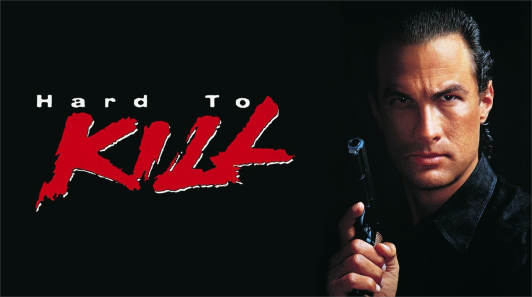Steven Pressfield's Blog
November 19, 2025
“You Have to Have a Slate”
I was doing a free rewrite on the lot at MGM when a producer friend spotted me on the bungalow’s porch and plopped down in the chair beside me. She asked me what I was working on beside this freebie.
I hesitated.
“That can’t happen,” she said at once.
“What do you mean?”
“You not being ready when someone asks that question. You have to have a slate.”
“A slate?”
“Look around,” she said, indicating the soundstages and production offices that stretched in every direction. “Every studio has a slate. Fox, Disney, Warners … they’ve all got a lineup of pictures they’re making and more in the pipeline. Every producer on this lot has a slate, and every producer and actor and director on every other lot has a slate. I have a slate. You have to have one too.”

My friend was a serious player. She had had hits at two different studios and was in production on another at a third.
“Think about who we’re competing against in this town, Steve. It’s not just other writers. We’re competing with studios. We have to have the same professional attitude that they have—about finances, about contingencies, about material.
You’re a writer. At all times you have to have at least three finished scripts and half a dozen in the works. In a meeting, when a producer says to you, ‘Steve, what else have you got?’, you have to be able to rattle off four, five, six projects—and be able to pitch ‘em all with full professionalism.”
My friend was late for a meeting; she had to hurry off. But it’s still burned into my brain, what she said as she left.
The post “You Have to Have a Slate” first appeared on Steven Pressfield.“Just because we’re ‘creative’ doesn’t mean we have permission to act like idiots. The reason writers are condescended to in this town and treated like children is because they act like children. Those days are over. We are entrepreneurs. We are in business. We’re competing against multi-billion-dollar enterprises and we have to be just as professional as they are.”
November 12, 2025
ADS2GO
My first stab at the entrepreneurial mindset came in Los Angeles, when the little ad agency I was working for went belly-up.
At the time, my nights and weekends were consumed with trying to break into the movie business as a screenwriter.
Suddenly I was broke and on the street. I thought, “Much as I’m terrified of it, I have to start my own business.”
I’ll be a freelancer. I’ll write ads for hire.
I remember vividly sitting down with a friend who was a bookkeeper, as she instructed me in how to set up a DBA—“Doing Business As”—and how to keep my accounting books. She taught me the old-fashioned way, with a pencil and a columnar pad. I still do it that way.
I named my new business ADS2GO. I designed stationery and even had a logo—a California license plate with ADS2GO on it.

All my life, I had worked for other people. I always had a boss. I was always an employee.
It was terrifying to get out and hustle. I hated it. I hate it to this day. But I had a movie-writing dream. I had to support it somehow.
I was in my late forties when I started, with massive trepidation, that little one-man business. I still face all such enterprises with the same trepidation (read: RESISTANCE). But that modest success got me out of the “employee” mindset. It laid the foundation for becoming—and thinking and acting like—an artist and an entrepreneur.
The post ADS2GO first appeared on Steven Pressfield.November 5, 2025
My Own Version of Elizabeth Gilbert’s Deal
I was in a production meeting at Warner Bros. for the second Steven Seagal movie, Hard to Kill. It was called Seven Year Storm at that time. The director was a gentleman named Bruce Malmuth.

The screenplay had a car chase in it. The movie was low-budget and the sequence was scripted very tightly. Bruce however had come up with a way to make this chase different and special. He was frantic to do it, but he needed more money from the studio and an extra day of shooting. I remember Bruce rising from his chair and making an impassioned plea for just a few more bucks and a little extra time.
The Warners’ executive listened calmly and with no change of expression. Bruce resumed his seat. He was actually out of breath from delivering his fervent pitch.
The executive thanked Bruce for his commitment and his creativity. He saluted him as a dedicated filmmaker and a true artist. Then he said:
“Bruce, think of this movie as a sausage. It’s just another link and you’re grinding it out.”
Everyone around the table, including Bruce, burst into laughter. But we all felt a chill too, at hearing stated in such stark, no-nonsense terms the reality of the marketplace.
I remember thinking at the time,
The executive is right. This movie IS a sausage. And our job, all of us around this table, IS to grind it out.
But my attitude toward the grinding does not have to be cynical or condescending. In fact …
I am grateful as hell to be here working on this sausage and to have a chance to grind it out.
And furthermore …
Nobody, including the studio and the studio executive, can stop me from giving my all to make it the best sausage possible.
In the end I got fired off the picture. You won’t find my name in the credits. But I still agree with what I thought then.
Every project doesn’t have to be Citizen Kane. It’s okay to work on “B” movies or to write trade ads for Preparation H. As long as we do our absolute best and keep our eyes on the prize of producing, when we work for love and not money, our own best material, as truly as we can to our own lights.
The post My Own Version of Elizabeth Gilbert’s Deal first appeared on Steven Pressfield.October 29, 2025
Working for the Man
We asked in last week’s post, “What do we do differently when we quit working on the assembly line at Ford Motor Company and go into business (or art or craft) for ourselves?”
Answer: We do exactly what we did when we worked for Ford, only instead of Ford telling us what to do, we tell ourselves.
Instead of the Man setting the agenda, we set it.

We decide what our goal is—and how we intend to reach it. We decide how much we’re willing to sacrifice to reach that goal. We decide how many hours we will work (our total, bank on it, will be much higher than it was at Ford) and how many weeks and months per year.
We decide where we will work. We decide when. And with whom.
We decide what time we get up and what time we go to bed. We assign our own vacations and our own days off. (We also assign all-nighters and working weekends.)
We alone will be the arbiters of our success. We’ll set the terms ourselves (they may be quite different from conventional measures of success.)
We’ll give ourselves a raise if we deserve it. And we’ll kick ourselves in the butt when we screw up.
We will be our own boss, our own mentor and teacher and psychiatrist.
Can we make that mental shift? Can we flip that switch in our head? Can we go from working for the Man to being the Man?
If our goal is to be a writer or an artist or an entrepreneur, we can’t do it any other way.
The post Working for the Man first appeared on Steven Pressfield.October 22, 2025
Tk Ths Job N Shove It
When you and I worked on the assembly line at Ford Motor Company in Dearborn, Michigan, we had to worry about our production quotas, our standards of workmanship, and our supervisor’s evaluation of us.
What we didn’t have to worry about was the structure of our day. That structure was defined for us and imposed upon us from outside.
Then one day we quit. Suddenly we were artists. We were entrepreneurs.

We thought it would be easy. We were free! Nothing could stop us!
It turned out to be the hardest thing we’d ever done.
Suddenly, like Dorothy swept up from Kansas or Luke following Obi-wan Kenobi, we had embarked upon our own Hero’s Journey. We had left the Ordinary World and entered the Inverted World, the Extraordinary World.
In this new world, all things became possible. Our life could change. Our future could change. Our prospects could change.
There was only one problem: we ourselves had to change.
We could not survive in the Extraordinary World using the mindset that had worked for us in the Ordinary World.
How exactly did we have to change?
We had to make the mental shift from externally-imposed discipline to self-discipline.
This, in one sentence, is the difference between the worker-for-hire and the entrepreneur.
I’m tempted to say it’s the difference between the Amateur Mindset and the Professional Mindset. But that’s not strictly accurate.
We were not amateurs when we worked at Ford. We were professionals. But we were professionals whose professionalism was imposed upon us from outside by our employer, under penalty of disciplinary action, penalty of fine, penalty of termination.
What exactly, we might then ask, is the Self-Sufficient Mindset—the mindset of the individual who has left the factory or Google or academia and has set herself up as an artist and an entrepreneur on her own? What should we do differently from when we worked on the line?
The post Tk Ths Job N Shove It first appeared on Steven Pressfield.October 15, 2025
Liz Gilbert’s Deal With Herself
Elizabeth Gilbert is the author of Eat Pray Love, Big Magic, and the brand-new All the Way to the River. She’s also a deep and honorable thinker on the subject of the artist and the artist’s soul.
When Elizabeth Gilbert was starting out, she made a deal with her writing.
I will never ask you to support me. I will support you.

Let me set that before us again.
I will never ask you to support me. I will support you.
What Ms. Gilbert was declaring for herself and to herself was that if she had to toil as a barista, if she had to drive for Uber, if she had to take a job at Hooters, she would do it.
She would not compromise her writing. She would not sell out her work.
I salute Ms. Gilbert for this declaration 1) because it reflects the hard-core reality of life and the marketplace, and 2) because it preserves her soul and her integrity as a writer.
What was really going on for Ms. Gilbert, as for you and me as well, was that she was caught between two immutable and conflicting realities.
One, she wanted to write what she wanted to write and nothing else.
And two, Nobody wants to read your sh*t.
It was entirely possible, Ms. Gilbert realized (and even highly likely) that if she wrote only what she wanted to write, nobody would want to read it.
Rather than freak out at this possibility, however, Ms. Gilbert took a very brave, very honorable, very hard-core, and very long-range position.
She bet on herself. She bet on her talent, even, I’m sure, when she wasn’t certain that she had any talent. She said to herself:
I’m going to keep doing what I love, writing what I think is the truest work from my soul … betting that sooner or later either I’ll get good enough at it to make people want to read my sh*t or people’s taste will catch up to mine. In the meantime, I will not tailor my work to the marketplace, I will not sell out to what I imagine will be hot at the box office or on the New York Times bestseller list. I will find a way to keep body and soul together, whatever sacrifice that may entail, while I pursue my calling as an artist.
Elizabeth Gilbert said to her writing:
The post Liz Gilbert’s Deal With Herself first appeared on Steven Pressfield.I will never ask you to support me. I will support you.
October 8, 2025
“Wake Up! Do Not Lie There ‘Thinking’!”
I’ve always wondered how the great avatars and truly evolved personages respond to the boring, quotidian, zero-glam aspects of their lives.
How does the Dalai Lama wake up? How did Gandhi brush his teeth?
Here’s what Paramahansa Yogananda (1893-1952) said to his followers about that moment, in bed, when he first opens his eyes.
“Wake up! Get out of bed! Do not lie there ‘thinking!’ Nothing good ever came from that!”

What Yogananda meant by “thinking,” I’m convinced, is Resistance. It’s not really thinking. It’s not rational cogitation. It’s the voice of self-sabotage. It’s the dragon.
We will not “think our way” out of that chatter in our heads. We will not overcome it by reasoning with it or listening to it as if it were talking sense.
The post “Wake Up! Do Not Lie There ‘Thinking’!” first appeared on Steven Pressfield.“Get up! Get out of bed! Do not lie there thinking! Nothing good ever came from that!’
October 1, 2025
My Head in the Morning
People ask sometimes, “What time in your day do you first experience Resistance?”
My answer: “The second I open my eyes.”

Why do I go to the gym first thing in the morning? To confront that negative force and establish a pattern of positive commitment for the day. Have you ever logged onto Navy SEAL Jocko Willink’s site? Every morning he posts a photo of his wristwatch at the moment he completes his workout. It’s inevitably Zero Dark Thirty. Jocko’s been retired from active duty for years, but he has never slackened off from the self-discipline he manifested in “the Teams.”
My friend Randy Wallace (who wrote Braveheart) has a mindset he calls “Little Successes.” From the minute he wakes up, Randy sets his mind to establishing—and mentally crediting himself with—a series of positive achievements, however modest, one after another. He counts brushing his teeth. He counts taking a shower. He too works out like a maniac early in the morning.
Resistance wakes up with Randy and with Jocko, just like it does with Twyla Tharp and with you and with me. This is why we train early, this is why we build habits, this is why we school ourselves in self-discipline and reinforce ourselves with “little successes.” To steel ourselves against that dragon of Resistance that we all know we’re going to face when we sit down to do our work.
The post My Head in the Morning first appeared on Steven Pressfield.September 24, 2025
Discipline and Self-Discipline
We were talking in an earlier post about the choreographer Twyla Tharp and her book, The Creative Habit. Let’s dig a little deeper into the principles that underlie Ms. Tharp’s mindset and that book.
What we’re really talking about is the difference between discipline and self-discipline.

If you’re a private in the army or a linebacker for the Chicago Bears, each day you practice. You run drills. You train in the gym. You do rehab for injuries.
That’s discipline, but it’s not self-discipline.
It’s not self-discipline because the structure of your day is imposed on you from without, by coaches, by superior officers, by teammates. A schedule is posted on the wall and you follow it. In the army, you literally have a sergeant yelling at you to get out of bed, run up that hill, get down and bang out fifty pushups.
Externally-imposed discipline is great, but it’s not what you and I need as artists and entrepreneurs. In our world, there are no sergeants. There is no boss, no coach, no mentor. We have to be our own coaches, our own editors, our own motivators.
Think back to Twlya Tharp, catching that cab for the gym at five in the morning. That’s self-discipline. That’s self-motivation. That’s self-reinforcement.
The post Discipline and Self-Discipline first appeared on Steven Pressfield.September 17, 2025
It’s All About Resistance
We’ve been talking in the past few posts about self-reliance, self-sufficiency, the mindset of the entrepreneur and the professional.
We’ve said to the aspiring writer or artist, “Brother, Sister, beyond talent and imagination, you’ve got to be mentally tough to succeed in these hardcore fields.”
Why? What’s the reason we have to be tough? Whom are we fighting? Who’s the enemy?
In The War of Art, I call it “Resistance.” With a capital-R.
Most of us have two lives. The life we live, and the unlived life within us. Between the two stands Resistance.
Have you ever brought home a treadmill and let it gather dust in the attic? Ever quit a diet, a course of yoga, a meditation practice? Have you ever bailed out on a call to embark upon a spiritual practice, dedicate yourself to a humanitarian calling, commit your life to the service of others? Have you ever wanted to be a mother, a doctor, an advocate for the weak and helpless; to run for office, crusade for the planet, campaign for world peace, or to preserve the environment? Late at night have you experienced a vision of the person you might become, the work you could accomplish, the realized being you were meant to be? Are you a writer who doesn’t write, a painter who doesn’t paint, an entrepreneur who never starts a venture? Then you know what Resistance is.
Resistance afflicts everyone, but it takes its greatest toll on the artist.

Why? Because the artist is alone. She has no coach, no mentor, no Gandolf or Merlin or Obi-wan Kenobi. She’s alone inside her own skull … and rattling around inside that unholy hemisphere is the demonic voice of her own Resistance. Fear. Self-doubt. Distraction. Procrastination. Laziness. Arrogance, Perfectionism. Complacency.
You and I as artists have to acquire—however and by whatever means —the same degree of mental toughness as test pilots and solo mountaineers and the greatest adventurers exploring the inner landscape of the human soul.
Yes, the artist faces competitors and rivals in the flesh. But her greatest foe resides inside her own head.
She is her own worst enemy.
The post It’s All About Resistance first appeared on Steven Pressfield.


